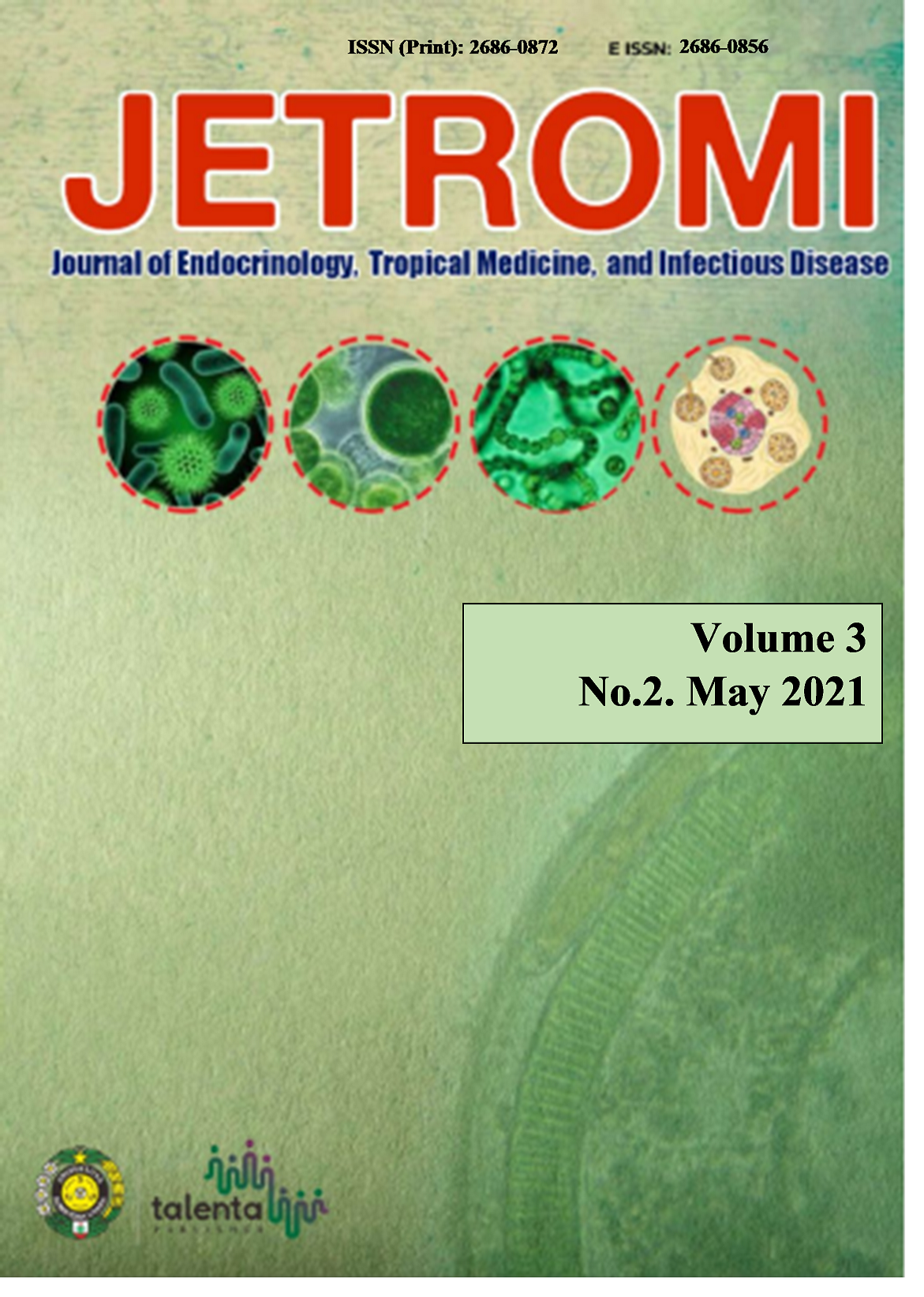Knowledge Level about Mother to Child Transmission of HIV/AIDS among Medical Student in Universitas Sumatera Utara
DOI:
https://doi.org/10.32734/jetromi.v3i2.5785Keywords:
AIDS, HIV, Knowledge, Mother to Child, TransmissionAbstract
ABSTRACT
Background: HIV/AIDS is one of the diseases that has been a global problem for a long time. In 2018, there were 37.9 million people worldwide infected with HIV and 1.7 million were children. Knowledge of the prevention of HIV transmission from mother-to-baby is very important as one of the prevention options. The aim of research knowing the level of knowledge of students of the Faculty of Medicine, Universitas Sumatra Utara  in 2017 against HIV transmission from mother to child.
Method: Research method conducted using online survey method with cross sectional design. The samples used are all students based on total sampling. The study used univariate analysis to see descriptive images with primary data sourced from online questionnaires.Â
Result: The level of knowledge of students of the Faculty of Medicine, University of North Sumatra in 2017 in the category of both 128 people (63.7%), enough 67 people (33.3 %), and less 6 people (3%).
Conclusion: Students of the Faculty of Medicine, University of North Sumatra in 2017 have good knowledge about HIV transmission from mother to child.
Downloads
Downloads
Published
Issue
Section
License
Copyright (c) 2021 Journal of Endocrinology, Tropical Medicine, and Infectious Disease (JETROMI)

This work is licensed under a Creative Commons Attribution-NonCommercial-ShareAlike 4.0 International License.
The Authors submitting a manuscript do so on the understanding that if accepted for publication, copyright of the article shall be assigned to Journal of Endocrinology, Tropical Medicine and Infectious Diseases (JETROMI).
Copyright encompasses exclusive rights to reproduce and deliver the article in all form and media. The reproduction of any part of this journal, its storage in databases and its transmission by any form or media, will be allowed only with a written permission from Journal of Endocrinology, Tropical Medicine and Infectious Diseases (JETROMI).








